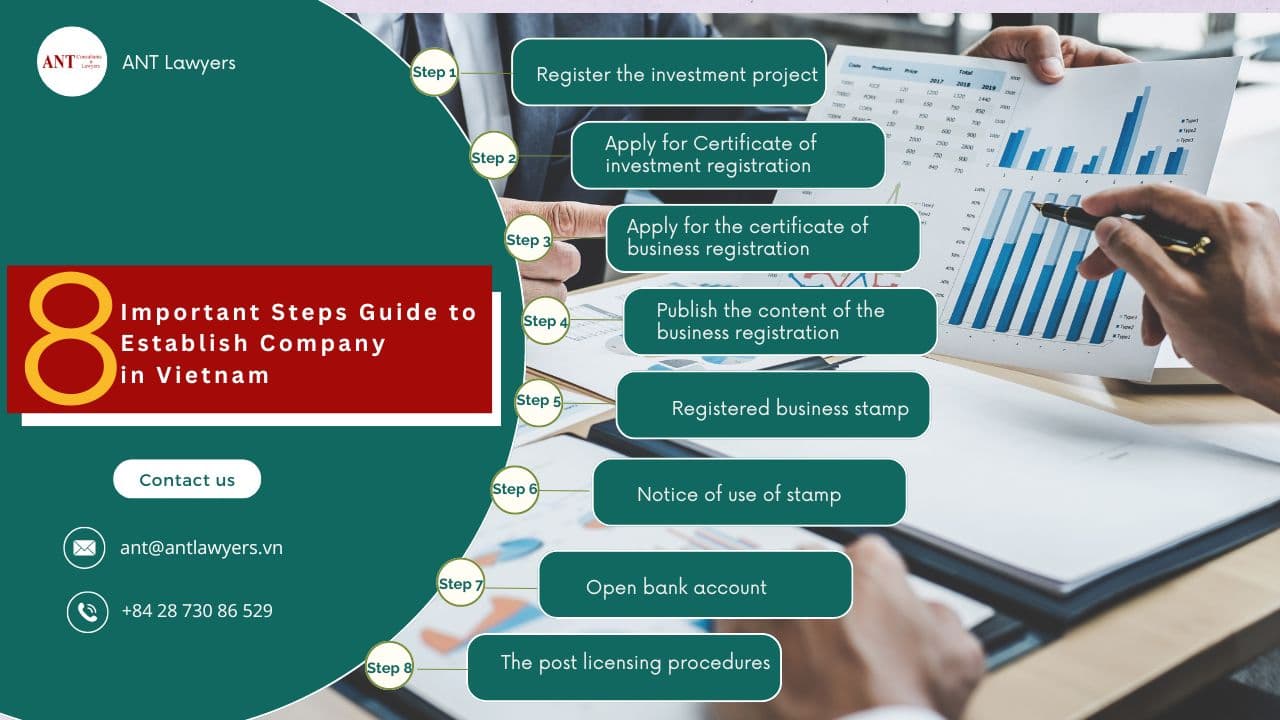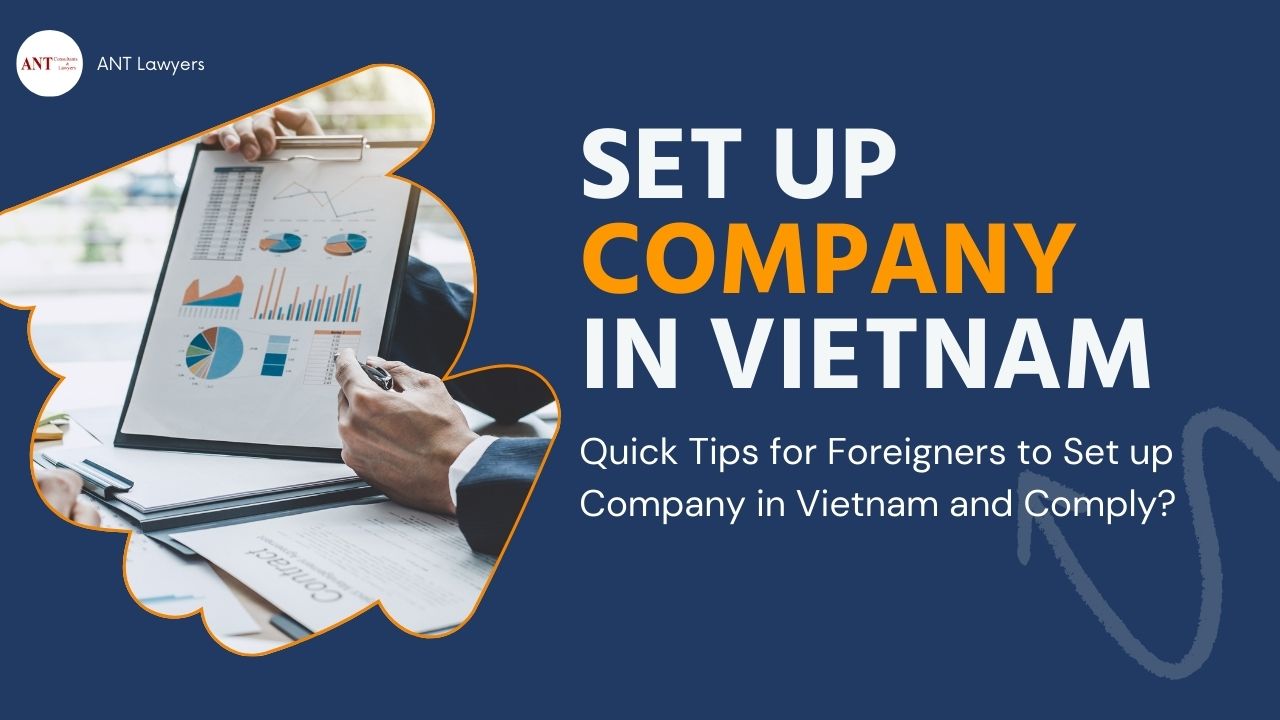Vietnam has emerged as a prime destination for foreign investors looking to tap into the dynamic and growing Southeast Asian market. One of the most effective ways to enter the Vietnamese market is by incorporating a joint venture. This guide will walk you through the 10 powerful steps to incorporate a joint venture in Vietnam, ensuring you understand the local context, legal requirements, and best practices to maximize your business potential
There are many advantages to incorporate a joint venture in Vietnam, including access to local market knowledge, established distribution networks, and favorable governmental policies. However, navigating the legal and bureaucratic landscape can be challenging without proper guidance.

Benefits to Incorporate a Joint Venture in Vietnam
1. Understanding the Joint Venture Concept in Vietnam
A joint venture (JV) in Vietnam is a business arrangement where foreign and Vietnamese investors come together to establish a new business entity. This collaboration leverages the strengths and resources of both parties to achieve common business goals. The primary legal framework governing joint ventures in Vietnam includes the Law on Enterprises, the Law on Investment, and relevant decrees and circulars issued by the government.
2. Advantages of Joint Ventures in Vietnam
There are benefits to incorporate a joint venture in Vietnam:
Market Access:
JVs provide foreign investors with access to local markets and customer bases.
Local Expertise:
Local partners bring valuable insights into business practices, regulations, and cultural nuances.
Shared Risks and Costs:
Partners share the financial burden and risks associated with business operations.
Government Incentives:
Vietnam offers various incentives for foreign-invested enterprises, particularly in high-tech, manufacturing, and export-oriented industries.
10 Steps to Incorporate a Joint Venture in Vietnam
Step 1: Conduct Market Research and Feasibility Study to Incorporate a Joint Venture in Vietnam
Step 2: Find the Right Local Partner to Incorporate a Joint Venture in Vietnam
Step 3: Draft a Joint Venture Agreement to Incorporate a Joint Venture in Vietnam
Step 4: Legal Structure and Business Registration to Incorporate a Joint Venture in Vietnam
Step 5: Compliance with Vietnamese Laws
Step 6: Capital Contribution and Profit Sharing
Step 7: Operational Setup and Management
Step 8: Addressing Cultural Differences to Incorporate a Joint Venture in Vietnam
Step 9: Navigating Taxation and Financial Reporting
Step 10: Ongoing Management and Evaluation
Step 1: Conduct Market Research and Feasibility Study to Incorporate a Joint Venture in Vietnam
Before incorporating a joint venture in Vietnam, it’s crucial to conduct thorough market research and a feasibility study. This step involves analyzing market demand, competition, regulatory environment, and potential challenges. Understanding these factors will help in making informed decisions and identifying viable business opportunities.
Step 2: Find the Right Local Partner to Incorporate a Joint Venture in Vietnam
Finding the right local partner is a critical step in incorporating a joint venture in Vietnam. The ideal partner should have a strong market presence, good reputation, and complementary business skills. Due diligence is essential to ensure the partner’s credibility and alignment with your business objectives.
Step 3: Draft a Joint Venture Agreement to Incorporate a Joint Venture in Vietnam
The joint venture agreement is the foundation of the JV, outlining the rights and responsibilities of each party. Key components of the agreement include:
Capital Contribution:
Details on the amount and form of capital each party will contribute.
Management Structure:
Roles and responsibilities of each partner in the management and operation of the JV.
Profit Sharing:
How profits and losses will be distributed among partners.
Dispute Resolution:
Mechanisms for resolving conflicts that may arise during the JV’s operation.
Step 4: Legal Structure and Business Registration to Incorporate a Joint Venture in Vietnam
To incorporate a joint venture in Vietnam requires choosing the appropriate legal structure, such as a limited liability company (LLC) or a joint stock company (JSC). The chosen structure should align with the JV’s business goals and comply with Vietnamese laws. The registration process involves:
Obtaining Investment Registration Certificate (IRC):
This certificate is issued by the Department of Planning and Investment (DPI) and is mandatory for foreign-invested enterprises.
Business Registration Certificate (BRC):
This certificate authorizes the JV to conduct business activities in Vietnam.
Step 5: Compliance with Vietnamese Laws
Ensuring compliance with Vietnamese laws is crucial for the smooth operation of the joint venture. Key areas to focus on include:
Labor Laws
Adhering to labor regulations is essential for maintaining a lawful and productive workplace. Key aspects include:
- Employment Contracts: All employment agreements must be in writing and comply with Vietnamese labor laws, clearly outlining job descriptions, salaries, benefits, and termination conditions.
- Working Hours: The standard working week in Vietnam is 48 hours. Overtime must be compensated according to statutory rates.
- Employee Benefits: Employers are required to provide benefits such as social insurance, health insurance, and unemployment insurance. Additionally, annual leave, public holidays, and maternity leave must comply with legal requirements.
Environmental Laws
Compliance with environmental regulations is mandatory to prevent penalties and support sustainable business practices. Important considerations include:
- Environmental Impact Assessment (EIA): Before commencing operations, businesses must conduct an EIA to identify potential environmental impacts and propose mitigation measures.
- Permits and Licenses: Obtaining the necessary environmental permits, such as waste discharge permits and emission licenses, is critical.
- Pollution Control: Implementing measures to control pollution and ensure waste management practices meet the required standards.
Intellectual Property Laws
Protecting intellectual property (IP) is vital to safeguarding business innovations and brand identity. This involves:
- Trademarks and Patents: Registering trademarks, patents, and industrial designs with the National Office of Intellectual Property (NOIP) to secure exclusive rights.
- Copyrights: Ensuring that copyrights for literary, artistic, and scientific works are protected under Vietnamese law.
- Enforcement: Monitoring and enforcing IP rights through administrative, civil, and criminal actions against infringements.
Report on Investment Activities
Foreign-invested enterprises are required to report on their investment activities to various governmental bodies. This includes:
- Periodic Reports: Submitting periodic investment reports to the Department of Planning and Investment (DPI) and the General Statistics Office (GSO). These reports typically cover operational status, financial performance, and compliance with investment regulations.
Business Registration and Licensing
Maintaining compliance with business registration and licensing requirements is fundamental for lawful operations. Key steps include:
- Business License Renewal: Ensuring that all business licenses and permits are renewed periodically and remain valid.
- Amendments and Updates: Promptly updating any changes in the business’s registered information, such as changes in business address, capital, or ownership structure, with the DPI and other relevant authorities.
- Sector-Specific Licenses: Acquiring and renewing sector-specific licenses and certifications required for the JV’s specific industry, such as food safety certifications or construction permits.
Import and Export Regulations
For JVs involved in international trade, compliance with import and export regulations is crucial. Key aspects include:
- Customs Procedures: Adhering to customs declaration procedures, tariff classifications, and duty payments. Utilizing preferential tariffs under free trade agreements (FTAs) when applicable.
- Export Controls: Complying with export control regulations, including obtaining necessary export licenses and adhering to restrictions on certain goods and technologies.
- Standards and Certifications: Ensuring that imported and exported products meet Vietnamese standards and certification requirements, such as quality standards, safety regulations, and labeling requirements.
Step 6: Capital Contribution and Profit Sharing
Capital contribution and profit sharing are fundamental aspects of a joint venture. Partners must agree on the form (cash, equipment, technology) and schedule of capital contributions. The profit-sharing arrangement should reflect the contributions and risk levels of each partner. Clear documentation and transparency in financial transactions are essential to maintain trust and accountability.
Step 7: Operational Setup and Management
Setting up operations involves establishing the physical infrastructure, hiring staff, and implementing operational processes. Effective management practices include:
- Governance Structure: Defining the roles and responsibilities of the board of directors and management team.
- Operational Policies: Developing policies on procurement, quality control, and customer service.
- Performance Monitoring: Implementing systems to monitor and evaluate the JV’s performance against set targets.
Step 8: Addressing Cultural Differences to Incorporate a Joint Venture in Vietnam
Cultural differences can impact the success of a joint venture. Understanding and respecting Vietnamese business culture, communication styles, and negotiation practices are vital. Building strong relationships and fostering mutual trust between partners can help overcome cultural barriers and enhance collaboration.
Step 9: Navigating Taxation and Financial Reporting
Taxation and financial reporting are critical components of operating a joint venture in Vietnam. Key considerations include:
- Corporate Income Tax (CIT): Understanding the CIT rates and applicable incentives for foreign-invested enterprises.
- Value Added Tax (VAT): Complying with VAT regulations on goods and services.
- Financial Reporting: Maintaining accurate financial records and submitting regular reports to relevant authorities.
Step 10: Ongoing Management and Evaluation
Continuous management and evaluation are necessary to ensure the joint venture’s long-term success. Regular performance reviews, strategic planning sessions, and adjustments to business strategies can help the JV adapt to changing market conditions and achieve its objectives. Effective communication and collaboration between partners are key to addressing challenges and seizing new opportunities.
In conclusion, incorporating a joint venture in Vietnam offers a strategic pathway for foreign investors to tap into the vibrant Vietnamese market. By following these 10 powerful steps, businesses can navigate the complexities of the Vietnamese legal and business environment, build strong partnerships, and achieve sustainable growth to incorporate a joint venture in Vietnam. Understanding the local context, adhering to legal requirements, and fostering effective collaboration are essential for the success of a joint venture in Vietnam.
About ANT Lawyers, a law firm in Vietnam
We help clients overcome cultural barriers and achieve their strategic and financial outcomes, while ensuring the best interest rate protection, risk mitigation and regulatory compliance. ANT lawyers has lawyers in Ho Chi Minh city, Hanoi, and Danang, and will help customers in doing business in Vietnam.

Vietnam Company Incorporation: 12 Reasons and Opportunities

How to set up a joint-stock company in Vietnam

How Long It Takes to Set Up a Company in Vietnam

Company Formation in Vietnam: A Comprehensive Guide

5 Steps to Register Company in Vietnam

Establish Company in Vietnam: What 8 Steps Guide to Follow

How ANT Lawyers Could Help Your Business?
You could learn more about ANT Lawyers Foreign Investment Practice or contact our English speaking solicitors in Vietnam for advice via email ant@antlawyers.vn or call our office at +84 28 730 86 529
